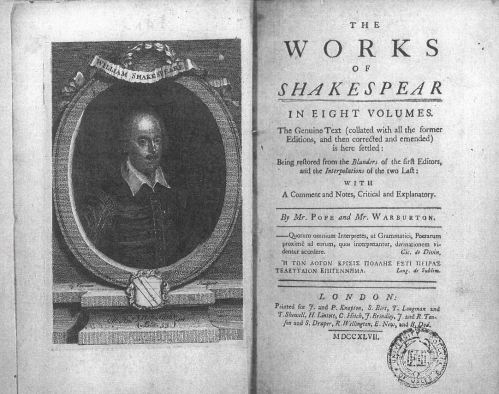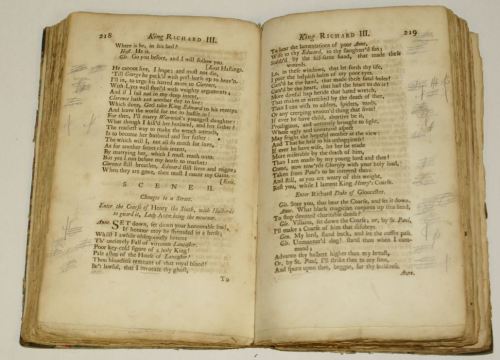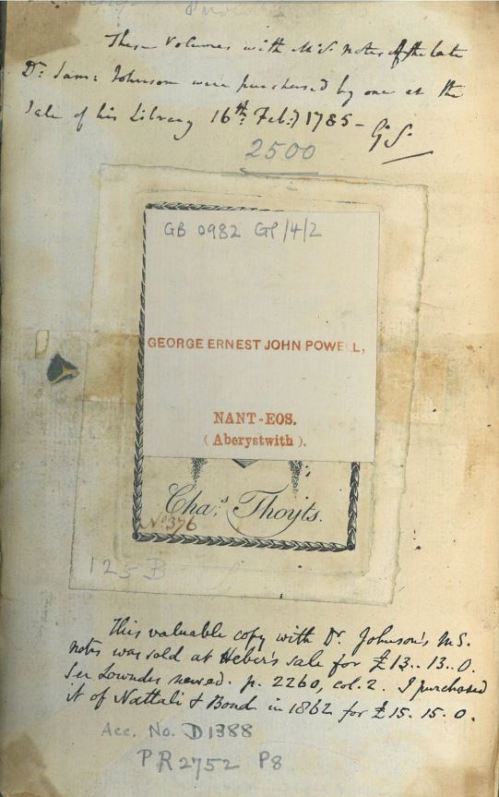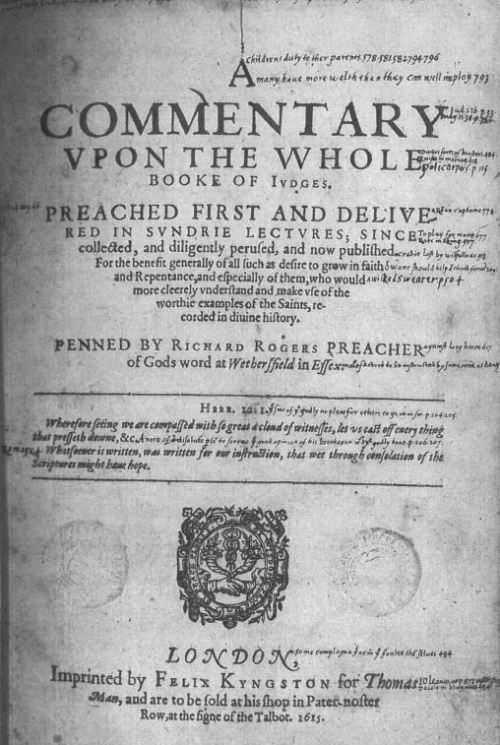April 2014 means Happy 450th Birthday to Shakespeare. Will you be seeing the Information Services Players channelling Lear, raging at the next great storm to hit Aber? Or finding forbidden love, leaning out of balconies, and it all ending tragically? Well watch this space! (I have been asked to clarify that this will probably not actually happen…bah, spoilsports!).
Nevertheless, we would still like to present one of our greatest Library treasures to celebrate the occasion. This is the 1747 Bishop Warburton edition of Shakespeare, used by Dr. Samuel Johnson in the preparation of his Dictionary. The volumes will be on display on Level D, in addition to an earlier 1725 collection by Pope and some famous forgeries of plays that William Ireland tried to pass off as ‘lost works’ by Shakespeare on Level F.

The Warburton edition of Shakespeare (1747)…’restored from the Blunders of the first Editors, and the Interpolations of the two Last’
After being approached by a group of publishers in 1746, Johnson (and a number of assistants for the copying work) took 9 years to complete the task – in a biography of Johnson, the dictionary is described as:
“easily ranking as one of the greatest single achievements of scholarship, and probably the greatest ever performed by one individual who laboured under anything like the disadvantages in a comparable length of time” (from Samuel Johnson, Walter Bate 1977).
This copy of Warburton’s collected Shakespeare is filled with notes by Johnson, as he found examples of words to use in the dictionary – more than from any other work. According to the Oxford English Dictionary today, the first evidence of 1,582 new words in the English language come from Shakespeare, as well as the evidence of 7,956 words used with new meanings. His completely new words included admired, ghost, and leap-frog, and nobody would be saying that the world was their oyster, or that there was method in their madness without him.
Johnson’s friend Sir John Hawkins described the scene during the process of collecting examples for the dictionary:
“The books he used for this purpose were what he had in his own collection, a copious but a miserably ragged one, and all such as he could borrow; which latter, if ever they came back to those that lent them, were so defaced as to be scarce worth owning.” (from Life of Samuel Johnson, 1787).
These unique volumes passed from Johnson to the Shakespeare scholar George Stevens in 1785. They came into the possession of scholar and serious bibliophile Richard Heber (whose libraries in Britain and abroad supposedly contained over 150,000 volumes), and at some point were also owned by a Major Charles Thoyts (whose book-plates are in all 8 volumes – the sale of his library is recorded in a Sotheby’s auction catalogue from 1815) . In 1862 they were acquired by George Powell of Nanteos for 15 guineas, and were then left to the University.



